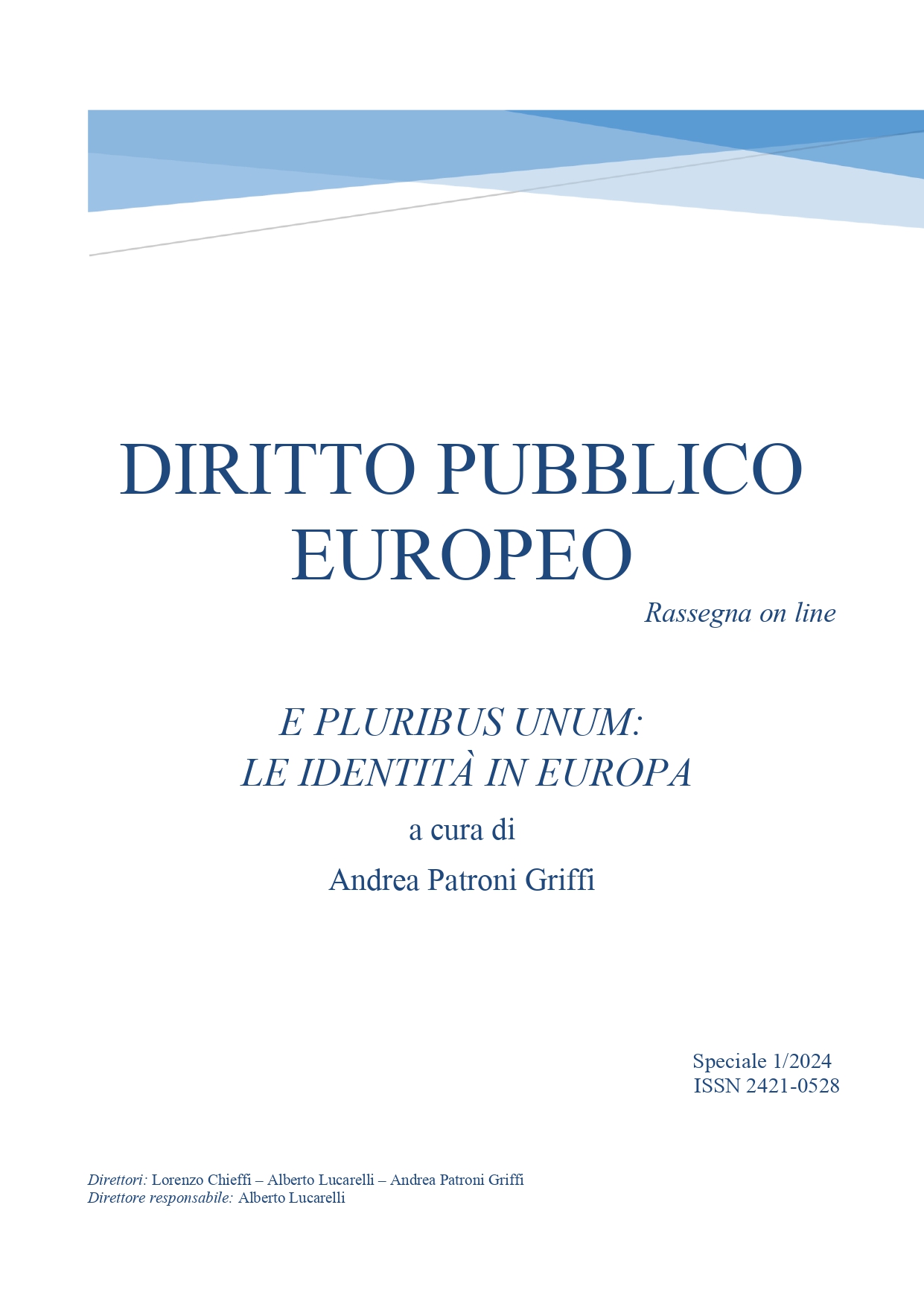Identità europea vs identità nazionale. Verso inesorabili e necessari mutamenti costituzionali
DOI:
https://doi.org/10.6093/2421-0528/11205Parole chiave:
Identità Europa, integrazione europea, mutamenti costituzionali, democraticità dell’ordinamentoAbstract
Tra gli aspetti più determinanti del processo di integrazione europea rientra, senza dubbio, l’affermazione del principio del primato strettamente connesso al rapporto tra identità nazionale ed identità europea. Quest’ultimo è stato, ed è, come è noto, oggetto di un importante dibattito caratterizzato da aspetti politici, culturali e sociali vista la capacità, da parte di entrambe, di influenzarsi e, in casi particolari, entrare in conflitto. A ciò si aggiunga, inoltre, come la «commistione» tra ordinamenti statali ed europeo sia stata, inoltre, da tempo, considerata, tra le cause più rilevanti dei mutamenti costituzionali che si sono verificati nel corso degli anni, dai quali è derivata una profonda evoluzione dell’ordinamento nazionale. E' noto, infatti, come i sistemi costituzionali siano sempre più assoggettati a incessanti mutamenti derivanti da una pluralità di elementi di natura politica, giuridica, economica e sociale, dai cui deriva una adeguata e spontanea evoluzione degli stessi nel rispetto del nucleo dei principi fondamentali che danno identità agli ordinamenti stessi. Le parti della Costituzione che sono state, senza dubbio alcuno, oggetto dei più rilevanti mutamenti derivanti dal processo di integrazione europea sono quelle riguardanti la c.d. Costituzione economica e la forma di governo. Si tratta di un processo che ha subito, e continua a subire, delle importanti evoluzioni dovute agli eventi storici, politici e sociali che si sono susseguiti nel corso degli ultimi anni e che hanno reso sempre più evidente come, indipendentemente dalla forma di governo adottata, la verticalizzazione appaia una certezza. Muovendo da tale considerazione, secondo la quale la verticalizzazione della decisione deve senza dubbio essere considerata un elemento imprescindibile ed inesorabile e, soprattutto, un elemento caratterizzante l’identità europea, il presente lavoro si prefigge l’obiettivo di interrogarsi sul necessario processo riformatore che sia in grado di ridurre quella divaricazione tra il testo costituzionale e l’effettivo cambiamento storico- politico permettendo al sistema istituzionale di essere al passo con le trasformazioni degli ultimi anni e scongiurare, di conseguenza, l'uso di tali mutamenti costituzionali come strumento politico


